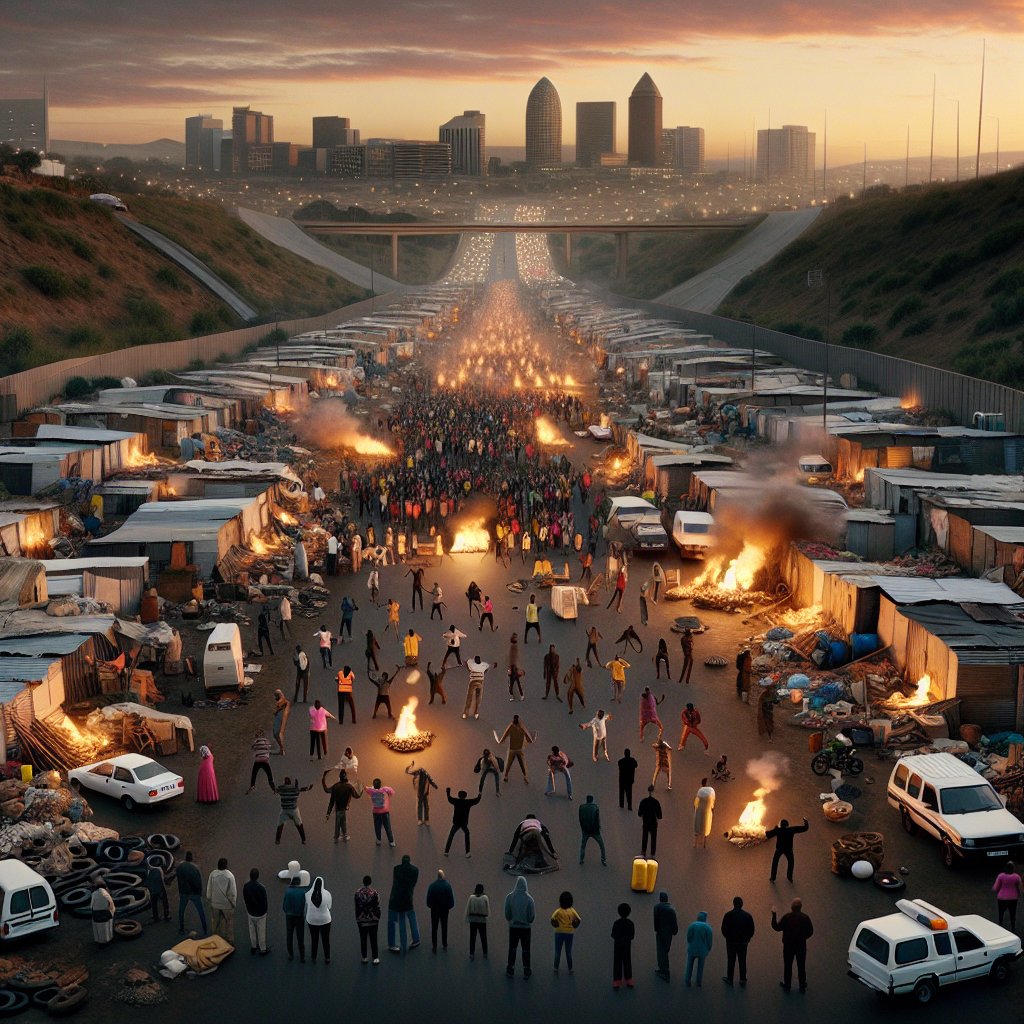Image created by AI
Stock Road Settlement Residents Protest for Basic Services in Cape Town
The city of Cape Town awoke to the sounds and sights of protest on a recent Friday morning as residents of the newly christened Loyiso Nkohla informal settlement took to the streets demanding the most fundamental of human needs: access to water, electricity, and sanitation services.
These residents were formerly shack dwellers in the railway reserve areas of Philippi and Nyanga, having been recently shifted to land adjacent to Stock Road station. In their pursuit of recognition and services, they erected barricades of burning tires and boulders at the nexus of Stock Road and the R300 freeway, aiming to capture the City of Cape Town's attention regarding their plight.
Western Cape police spokesperson Wesley Twigg confirmed that Public Order Police and other law enforcement agencies were deployed to the scene of the protest. Upon their arrival, the protesters dispersed without confrontation or arrest, and law enforcement remains in the area, closely monitoring any further developments.
The grievances aired by this community are not of a sophisticated nature; they are simply calling for essentials to lead a dignified life. Since their relocation in December, the community alleges that service provision has been non-existent. This includes the lack of a regular water supply, no refuse collection, and insufficient sanitation facilities. Water trucks and refuse bags promised by the city have failed to materialize, according to the residents, leaving them to seek resources from nearby neighborhoods and live amidst accumulating waste.
Community leader Thembelani Ntelezi illustrated the severity of their situation, explaining how basic cleanliness has become a challenge due to insufficient janitorial staff for toilets, and an unreliable water supply has forced them to depend on surrounding areas for water. The community's desperation for electricity was emphasized as Ntelezi voiced the difficulty of living in darkness and the uncertainty of when the City would provide an electrified environment.
Residents like Masonwabe Funda, a mother of three, detailed their daily struggles to make do without electricity, resorting to candles and paraffin stoves to cook. Due to the exorbitant cost, illegal electrical connections are not an option, and as Funda stated, the community has resolved to continue their disruptive demonstrations until the government acknowledges and addresses their needs.
The City of Cape Town, in response, acknowledged the increasing demands for services from many newly established communities but highlighted the constraints of limited resources. It noted that existing recognized informal settlements with planned and budgeted projects took precedence. While the City professed to take grievances seriously and encouraged residents to voice their concerns constructively, the residents of Loyiso Nkohla informal settlement felt compelled to adopt a more pressing method of communication: protest.










